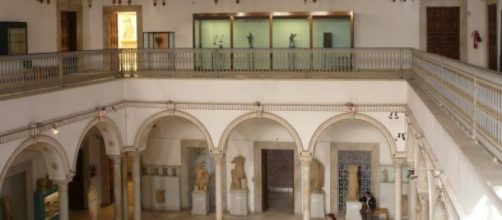Tourists from around the world have taken it to social networks to reassure Tunisia about tourism in the country after an attack claimed by the Islamic State saw 23 people die, including the two gunmen.
The hashtags #jesuisbardo and #jesuistunisien started trending on Twitter on Wednesday as social media users expressed solidarity with the victims of the attack.
Later on, pictures of users worldwide holding a sign saying ‘I will come to Tunisia this summer’ appeared on social networks such as Twitter and Instagram, in a bid to counter the fears that the country’s economy will suffer from a loss of tourism revenue.
The tourism sector represents 6.5% of Tunisia's GDP and is on the recovery following the 2011 Arab Spring uprising, which saw an important decrease in the number of tourists.
A successful post-uprising democratic transition reassured tourists, who started coming back in the last couple of years. A new government was democratically elected in December 2014, putting Beji Caid Essebsi at the head of the country.
After the siege ended on Wednesday, thousands took it to one of the capital’s main streets, Avenue Habib Bourguiba, to protest.
The Bardo museum is the biggest in the country and includes collections of antiquities from ancient Greece, Tunisia and the Islamic period in a 19th-century palace.
It is set to re-open next week.
Eighteen tourists were killed on Wednesday after the siege on Bardo Museum in the country’s capital Tunis, which lasted hours. Among them were Japanese, Italian, French, Polish, Colombian, Spanish tourists, and one whose identity wasn’t verified.
The two gunmen were killed when security forces stormed the building, as well as three Tunisian nationals.
Fifty people have been reported wounded.
In an audio recording published online on Thursday afternoon, the Islamic State claimed responsibility for the terrorist acts. The militant organisation praised the perpetrators, one of whom was Yassine Laabidi, previously flagged by the secret services and Hatem

